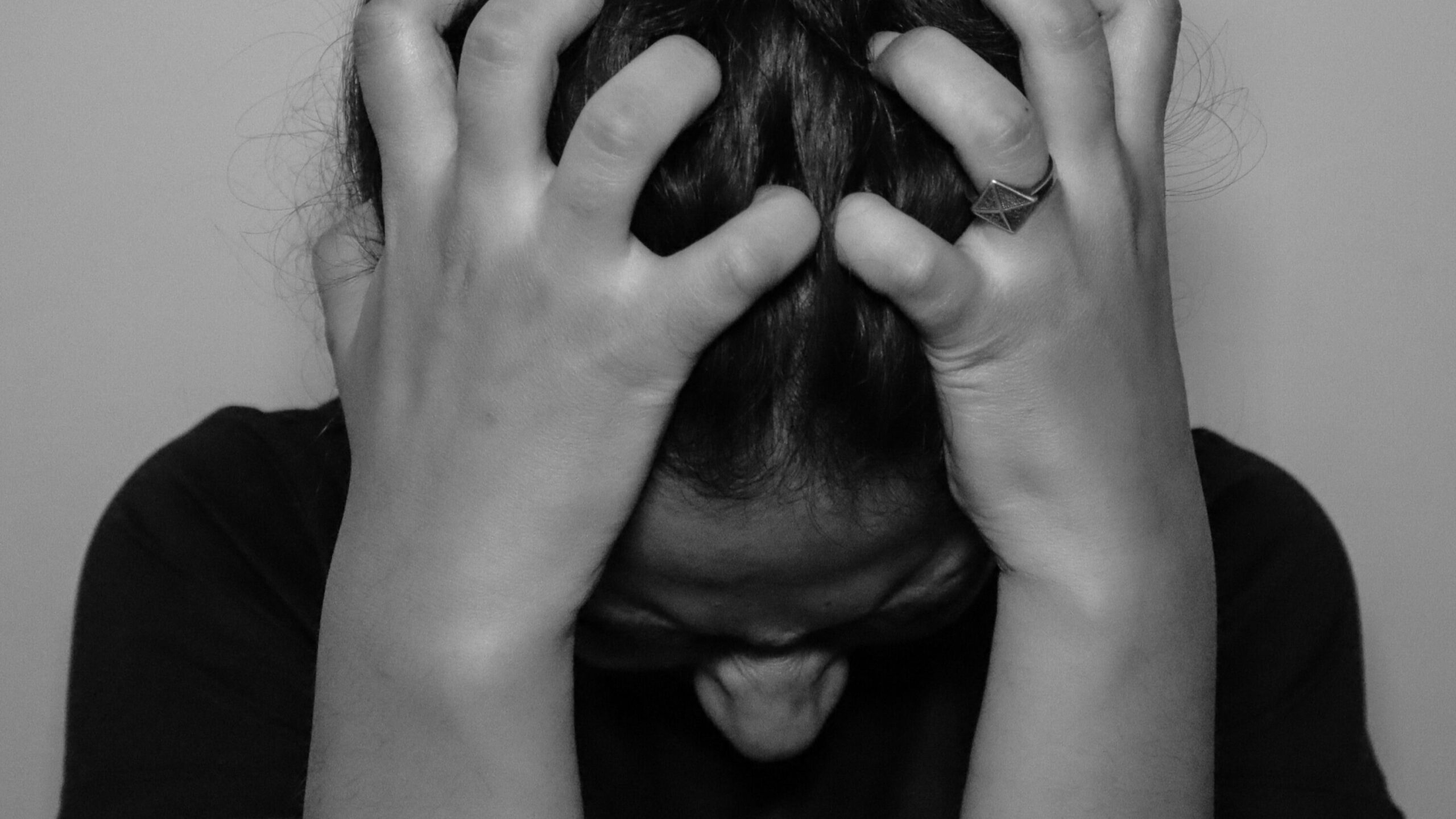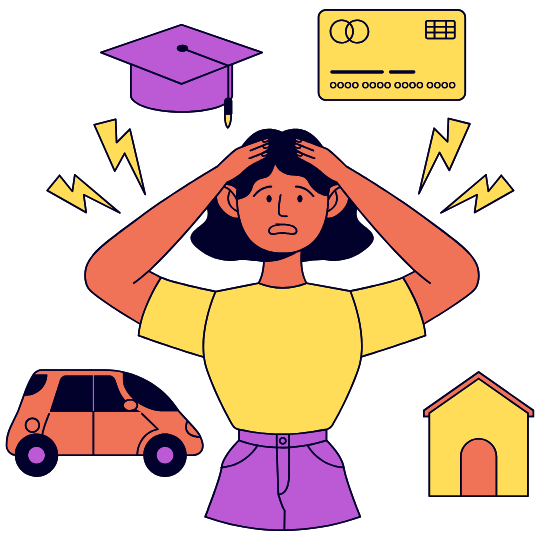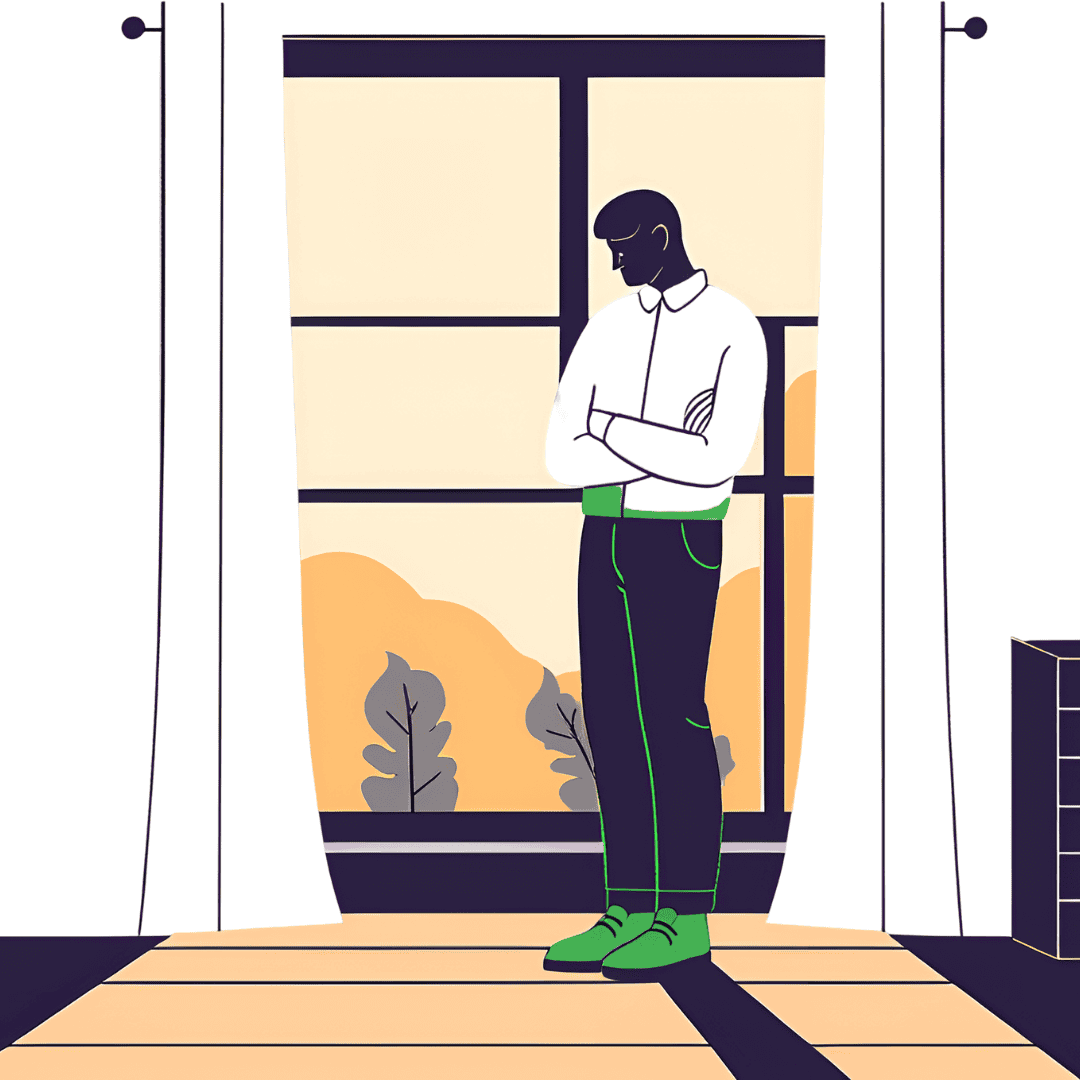
What is panic disorder?
Someone may have a panic disorder if they experience recurring, unexpected panic attacks with one or more attacks followed by at least one month of fear of experiencing another one. They may exhibit significant, maladapted behavior related to the attacks.
What is a panic attack?
A panic attack is a sudden episode of intense fear that triggers an intense reaction when there is no real danger or apparent cause. Panic attacks can be very frightening – you might feel like you’re losing control, having a heart attack, or even dying.
Many people who have experienced these types of attacks may go to the Emergency Room. When all cardiac or other medical causes are ruled out, the emergency room doctor will tell you that you’ve had a panic attack.
Many people may have 1-2 panic attacks in their life and the problem goes away when the stressful situation comes to an end. 1 out of 4 of us will experience a panic attack in our lifetime. While panic attacks themselves are not life threatening, they can be very frightening and alarming and significantly affecting your quality of life.
Panic attacks typically begin suddenly, and without warning. They can strike at any time, whether you are driving or sound asleep. They can strike occasionally or even frequently with some experiencing them one every other day. Panic attacks have many variations but symptoms usually peak within minutes. You may feel fatigued and worn out after a panic attack. It is very tiresome to have these.
Symptoms of a Panic Attack
There are many symptoms through which a panic attack manifests itself and can be divided into these categories:
Feelings & Thoughts
– Sense of impending doom or danger
– Fear of loss of control
– Fear of death
– Feeling of detachment from reality, as if you are not real or where you are is not real
Symptoms in Chest Area
– Shortness of breath
– Rapid pounding heart rate
– Tightness in your throat
– Chest pain / discomfort in the chest
Symptoms in Bodily Area
– Sweating
– Trembling
– Shaking
– Hot flashes
– Tingling sensations
– Nausea
– Abdominal cramping
– Headaches
– Dizziness / feeling lightheaded
– Feeling faint
One of the worst things about panic attacks is the intense fear that you may have another one. You fear having panic attacks so much that you avoid certain situations in which you think they may occur.
Causes of Panic Disorder:
Medically, it is not really known what exactly causes panic attacks or panic disorder. Some factors may play a role such as genetics, major stress, a temperament more sensitive to stress, or prone to negative emotions, and certain changes in the way parts of your brain functions.
Panic attacks may come on suddenly without warning at first but overtime, they are usually triggered by certain situations. Some research suggests that your body’s natural flight or fight responses are involved in panic attacks.
For example, if a grizzly bear were to come after you, your body would react instinctively – your heart rate would speed up as your body prepares for a life- threatening situation. Many of the same reactions occur in a panic attack, but there is no known or obviously dangerous situation that triggers this panic attack.
Risk factors for Panic Disorder:
Symptoms of a Panic Disorder often start in the late teens or early adulthood and affect more women than men, however children can have Panic Disorder as well. They are less common in children, and many times they will not be able to express what their fears are. Symptoms of children may be excessive screaming, excessive agitation, or excessive disobedience and defiant behaviors.
The factors that may increase a risk of panic attack or panic disorders include:
– Family history of panic attacks or a panic disorder
– Major life-related stressors such as divorce or addition of a baby, or any big changes
– A traumatic event such as physical or sexual assault or a serious accident
– Death of a loved one
– Smoking
– Excessive caffeine intake
– History of childhood physical or sexual abuse, or severe neglect. The memory of those traumas have faded but the body can remember and will induce a panic attack if it feels as though it is in danger
Potential consequences of Panic Disorder:
Panic attacks and panic disorder can affect almost every area of your life if left untreated. You may be so afraid of having more panic attacks that you live in constant fear. Potential consequences of untreated panic disorder include:
– Development of specific phobias, such as fear of driving or leaving your home.
– Frequent medical care for health problems and medical conditions. This is very common because there are so many bodily symptoms that occur during a panic attack and may cause someone to go to the ER, only to find out nothing is wrong on a medical level.
– Avoidance of social situations due to a fear of having a panic attack in public or amongst your loved ones. You may avoid important occasions because of this fear and become increasingly isolated.
– Development of secondary depression or other anxiety disorders.
– Increased risk of suicide and suicidal thoughts. Many people think suicide risk increases only with major depression. This is not so. Untreated anxiety and panic disorder can increase suicide risk.
– Alcohol and substance abuse as patients try to ‘self-medicate’ or find coping mechanisms.
When should someone seek help?
If you have panic attack symptoms, please seek help as soon as possible. Panic attacks are intensely uncomfortable. Panic attacks are hard to manage on your own and may get worse without treatment.
25% of us may get 1 panic attack in our lifetime but if it happens again and again – seek help!
Panic attack symptoms can also resemble other serious health problems such as a heart attack, so it is important to get evaluated by a primary care physician if you are not sure what is causing these symptoms. However since there are no underlying physical causes to these panic attacks, it is important to see a mental health professional to get the help that you need.
Treatment recommendations for Panic Disorder
Treatments typically recommended for Panic Disorder include psychotherapy and possibly medication management.
Psychotherapy is the initial treatment of choice. Medication may help decrease frequency and intensity of panic attacks, but psychotherapy will help you discover and understand where those underlying triggers come from. Medications cannot help you alone. They may help correct chemical imbalances in the brain for intense feelings of anxiety, but your brain has implicit memories that need to be worked through during psychotherapy. Psychotherapy is the KEY FIRST STEP for panic disorder.
Trusting in God with Panic Disorder:
During a panic attack, you may feel like your brain is running a mile a minute, and that you do not have control of your body or you feel like you are going to die.
You absolutely need to see a therapist to find the root cause of what triggers these panic attacks. However we must remember that panic disorder is one of the many ways Satan uses to cause suffering and keep us separate from God.
From the moment Adam & Eve took a bite of the forbidden fruit in the Garden of Eden, spiritual, physical, mental, and generational curses began to plague humanity to deceive us and to keep us separate from God.
Panic attacks and panic disorder are tools of Satan to keep us miserable and mistrustful towards God. He wants us to forget the presence of God and forget that He loves us. We have to remember that even though we are suffering now, He has a plan for us and He will give us refuge:
Psalm 91: 1-6
Whoever dwells in the shelter of the Most High will rest in the shadow of the Almighty. I will say of the Lord, “He is my refuge and my fortress, my God, in whom I trust.” Surely he will save you from the fowler’s snare and from the deadly pestilence. He will cover you with his feathers, and under his wings you will find refuge; his faithfulness will be your shield and rampart. You will not fear the terror of the night, nor the arrow that flies by day, nor the pestilence that stalks in the darkness, nor the plague that destroys at midday.
We hope that you can walk away from this with some hope that you are loved and there is a plan for you.
Enjoyed our blogpost? Subscribe to our newsletter for more resources on mental health and integrating the Gospel message in your healing journey.
If you found our resources useful, please consider donating to Oak Health Foundation, which is a 501(3)c nonprofit dedicated to providing resources regarding holistic mental healthcare and subsidized treatment for those in need.




